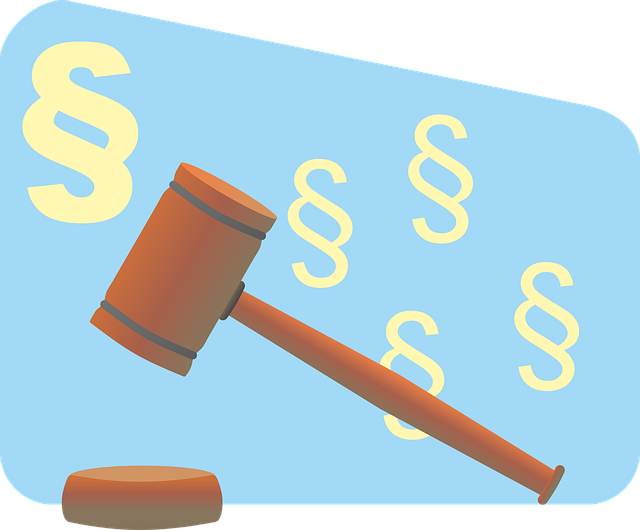To resolve real estate disputes, combat fraud with specialized legal counsel, data analytics, and AI/ML technologies. Combine robust legal frameworks, pre-contractual disclosures, inspections, and documentation with alternative dispute resolution methods like mediation. Implement strong internal controls and employee training for effective white collar defense.
In the dynamic realm of real estate, financial fraud remains a persistent challenge. This comprehensive guide delves into essential strategies for detecting and resolving real estate disputes, with a specific focus on common fraud schemes. We explore data analytics as a powerful tool to uncover hidden patterns and anomalies, highlighting the transformative role of AI and machine learning in bolstering detection efforts. Additionally, we navigate legal frameworks and dispute resolution strategies, offering practical insights on How to Resolve Real Estate Disputes effectively.
- Understanding Common Real Estate Fraud Schemes
- Data Analytics: Uncovering Patterns and Anomalies
- Role of AI and Machine Learning in Detection
- Legal Frameworks and Dispute Resolution Strategies
Understanding Common Real Estate Fraud Schemes

In the real estate market, fraud schemes can take many forms, from falsified property ownership documents to overstated property values. One common scheme involves con artists posing as legitimate agents or brokers, luring unsuspecting buyers or sellers with promises of lucrative deals. They may use sophisticated manipulation techniques, including forging paperwork, to convince their victims that the transaction is genuine. Another prevalent fraud is “flip fraud,” where criminals buy properties at below-market prices, artificially inflate their value through fraudulent renovations, and then quickly resell them for a significant profit, leaving unsuspecting investors with losses.
To resolve real estate disputes stemming from such schemes, it’s crucial to engage experienced legal counsel. A general criminal defense attorney can help uncover the truth behind fraudulent activities and protect your rights as either a buyer or seller. With their unprecedented track record in navigating complex cases, these professionals employ strategic approaches to ensure justice is served. They assist clients in gathering evidence, reviewing contracts, and taking necessary legal action to recover losses and prevent future frauds.
Data Analytics: Uncovering Patterns and Anomalies

In the realm of financial fraud detection, data analytics serves as a powerful tool, enabling professionals to uncover intricate patterns and anomalies that may indicate fraudulent activities. By leveraging advanced algorithms and sophisticated software, analysts can sift through vast datasets to identify unusual transactions or behaviors that deviate from established norms. This process is akin to navigating a complex labyrinth, where every twist and turn represents a potential lead. With an unprecedented track record of success, data analytics professionals are able to assist both the real estate and beyond sectors in resolving disputes efficiently and effectively.
When it comes to How to Resolve Real Estate Disputes, data analytics plays a pivotal role by providing objective insights that can help parties involved reach mutually agreeable solutions. In the context of philanthropic and political communities, this technology has also proven invaluable, ensuring fairness and transparency in various transactions. By identifying patterns that may be indicative of fraudulent practices, analysts can proactively mitigate risks and protect the interests of their clients, fostering an environment of trust and integrity.
Role of AI and Machine Learning in Detection

The integration of Artificial Intelligence (AI) and Machine Learning (ML) has revolutionized Financial Fraud Detection, offering unprecedented accuracy and efficiency in identifying suspicious activities. These technologies can analyze vast datasets, including transaction records, customer behavior patterns, and market trends, to uncover anomalies indicative of fraudulent practices. By learning from historical data, ML algorithms can adapt and improve their predictive models over time, enabling financial institutions to stay ahead of evolving fraud schemes. This proactive approach is particularly crucial in the real estate sector, where white-collar and economic crimes like mortgage fraud or property scams can have severe consequences for all parties involved.
AI and ML can assist in resolving such disputes by automating the detection process, flagging potential issues before they escalate. These tools can identify unusual transactions, suspicious document patterns, or outliers in spending behavior, helping to avoid indictment in cases of economic crimes. Moreover, by employing these technologies, businesses can streamline their internal controls, ensuring compliance and minimizing risks associated with respective operations. This not only enhances the overall integrity of financial systems but also fosters trust among consumers, investors, and stakeholders, particularly when navigating complex legal landscapes.
Legal Frameworks and Dispute Resolution Strategies

Legal frameworks play a pivotal role in financial fraud detection and dispute resolution, especially in the real estate sector. Robust regulations such as the Dodd-Frank Act in the United States or the Anti-Money Laundering (AML) directives in Europe provide a structured approach to identify and penalize fraudulent activities. These laws mandate reporting requirements, transparency, and due diligence checks for financial institutions and businesses, ensuring a level playing field and protecting both corporate and individual clients.
Effective dispute resolution strategies for real estate transactions involve a combination of legal expertise and proactive measures. For instance, pre-contractual disclosures, thorough property inspections, and comprehensive documentation can significantly reduce the risk of fraud. In cases where disputes arise, alternative dispute resolution (ADR) methods like mediation or arbitration offer efficient and cost-effective solutions. These processes facilitate negotiation and collaboration, enabling parties to achieve extraordinary results without lengthy litigation. Moreover, a strong white collar defense strategy, including robust internal controls and employee training, can deter fraudulent behavior and empower businesses to navigate legal complexities with confidence.
Financial fraud detection is an evolving field, particularly within real estate where sophisticated techniques like data analytics and AI are transforming dispute resolution. By understanding common fraud schemes, leveraging machine learning algorithms, and adhering to robust legal frameworks, industry professionals can effectively navigate and resolve real estate disputes. These strategies not only safeguard transactions but also promote transparency and trust in the market. To resolve real estate disputes efficiently, stay informed about emerging trends in fraud detection and embrace innovative solutions that enhance security for all parties involved.






